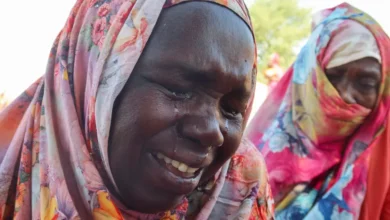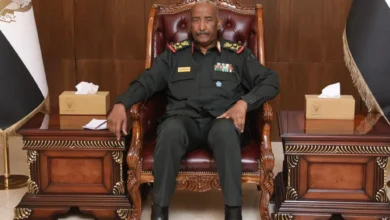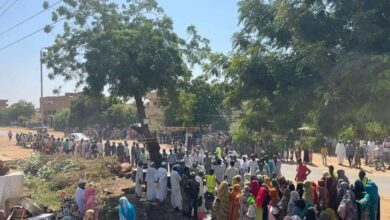The New York Times: After the failure of secret US talks, a hidden war in Africa is rapidly escalating

The New York Times reported that US diplomacy has failed to stop the fighting in northern Ethiopia, noting that the civil war in the East African country has entered its most worrisome phase so far. It explained that the Tigray region, located in northern Ethiopia, has become an “invisible” war zone, and the epicenter of an expanding conflict that is hidden behind a harsh government siege that has cut off communications in the region, prevented reporters from entering the country, and made 5.2 million people in dire need of food aid.
And the newspaper revealed – in a report by its chief correspondent in Africa, Declan Walsh – that an American military plane carrying senior diplomats crossed the front line on a secret mission to stop the bloodshed, at a time when fighting raged again in northern Ethiopia last September, which aborted a truce that lasted 5 Months.
The report stated that the plane flew at a low altitude so as not to be detected, heading to the besieged Tigray region in the north of the country – which has been at war with the forces of the government of Ethiopian Prime Minister Abi Ahmed – before continuing its flight to Djibouti, for a round of tense peace talks.
According to sources familiar with the negotiations.and in an indication of Washington’s mistrust of the two sides of the civil war, the US envoy to the region, Mike Hammer, was among the passengers on the plane belonging to the American forces to ensure that it was not shot down.
The newspaper stated that the United States held 3 secret meetings outside Ethiopia (in Djibouti and Seychelles), in which it gathered for the first time the warring leaders since the outbreak of the war in November 2020, the last of which was on the ninth of last September, and was attended by Radwan Hussein, Abi Ahmed’s advisor, Western and Tigranian representatives.
According to the New York Times report, the Eritrean authorities have fully mobilized their armed forces, and called all men under the age of 55 to military service. The newspaper quoted two American officials as saying that the United States changed its approach last January in dealing with developments in Ethiopia when President Joe Biden made the first phone call with Abi Ahmed, which allayed fears of the Ethiopian Prime Minister that Washington was seeking to overthrow him, and paved the way for That way for secret talks.
Those talks resulted in a humanitarian truce, but the two sides took advantage of it to rearm their forces, and with the advent of the summer, Abi Ahmed seemed to be procrastinating, according to officials whose identities were not revealed in the report.
The newspaper pointed out that other countries in the region were drawn into the fighting in Ethiopia, such as Sudan – which has become a “corridor” for aircraft transporting weapons to the Tigray region – according to a secret briefing provided by the European Union and its envoy to the Horn of Africa, Annette Weber, last September.
Two UN officials stated that about 650 Tigrayans, who were performing the UN peacekeeping mission in Sudan, fled the Ethiopian army seeking asylum. By last August, about 400 peacekeepers – most of them in Tigray province – had disappeared to fight alongside refugees recruited from camps along the border, officials said.
In his analysis of the situation, Hudson said Washington appeared to have been reluctant to take tougher measures – such as imposing the sanctions Biden introduced in November – in the hope that Ethiopia would once again become a strong US partner in the region.





